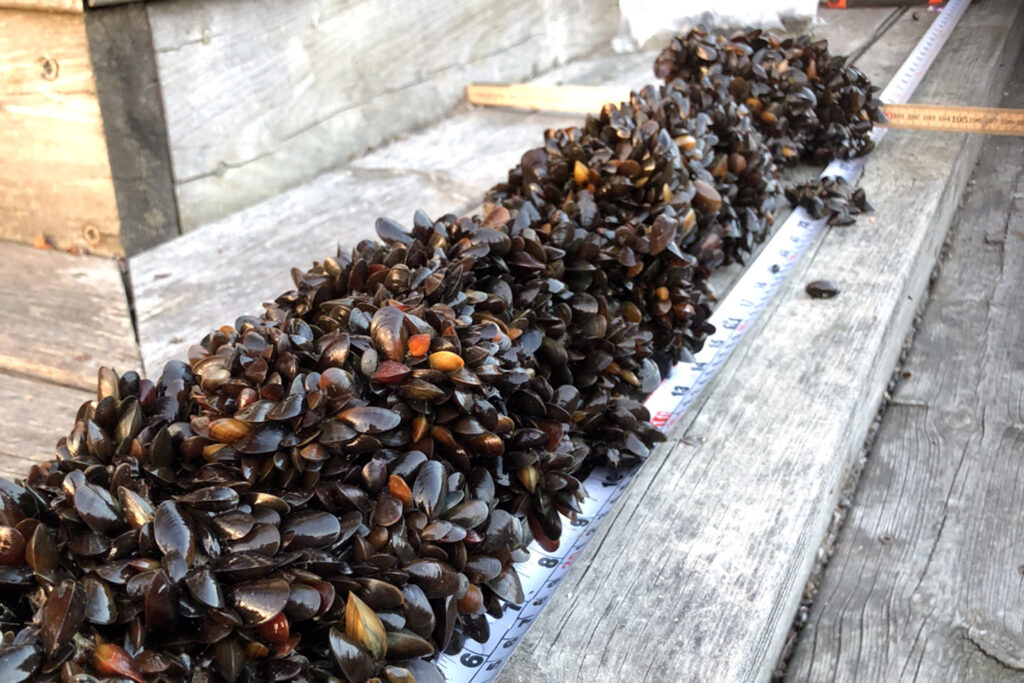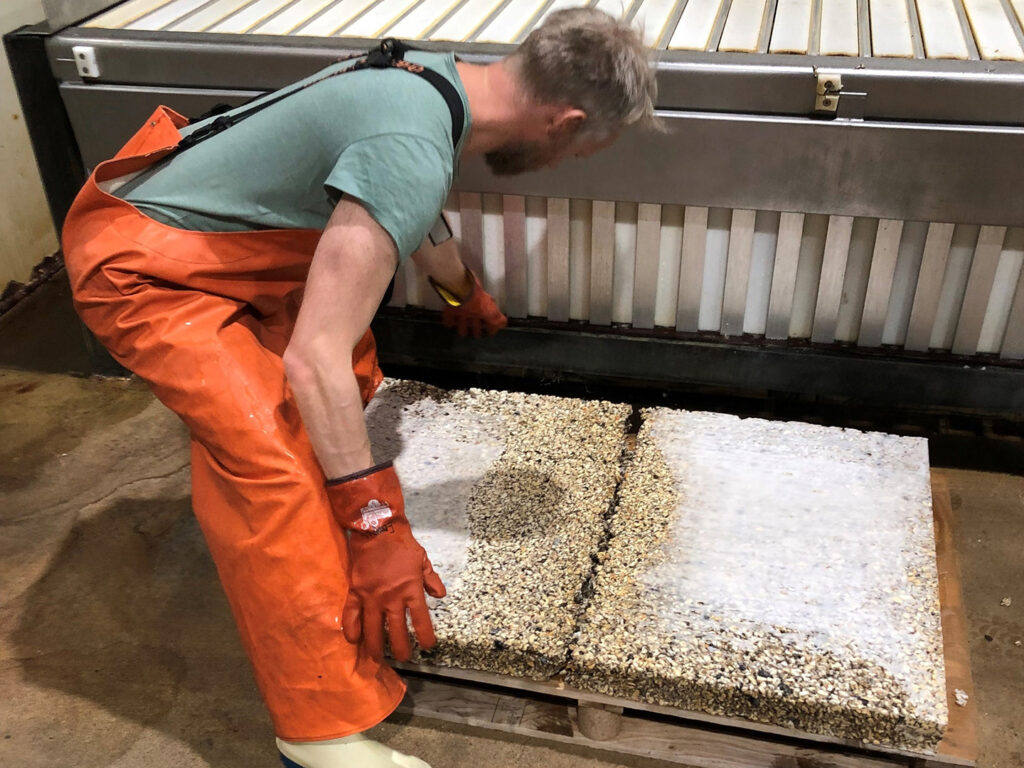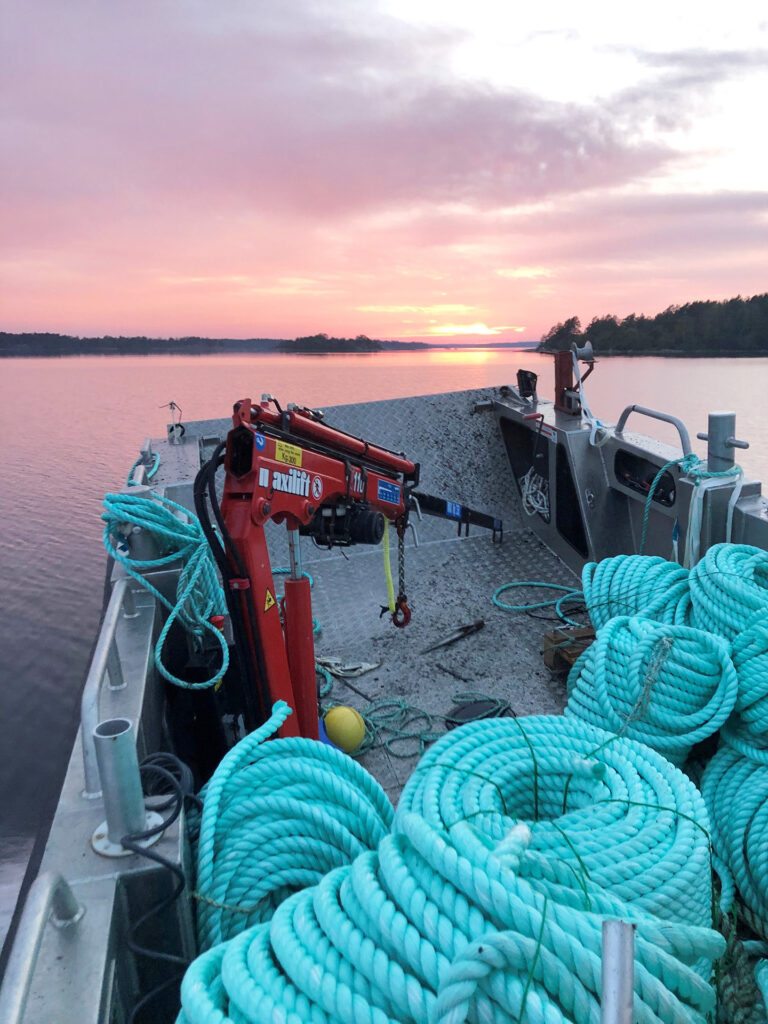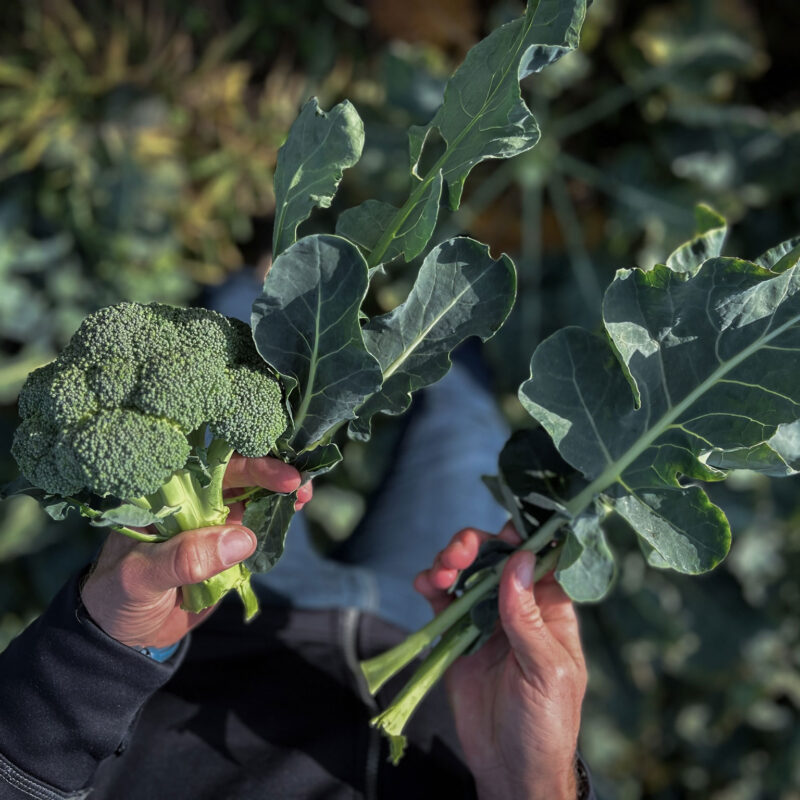Mussels That Purify the Baltic Sea Become Circular Animal Feed
2023.10.17

The blue mussels are the Baltic Sea's natural water purifiers – now they are being used to make mussel meal that can replace fish meal in animal feed.
Beneath the surface along Sweden’s east coast, clusters of blue mussels grow on ropes. They are the Baltic Sea’s natural water purifiers and part of the future of animal feed. Through the Feed of the Future for Fish, Pigs, Poultry and Laying Hens project mussels are turned into meal that can replace fish meal in animal feed. Ecopelag’s commitment to environmental conservation has become a circular business.
It all started with a vision of a cleaner Baltic Sea. In 2015, marine biologists Martin Reutgard and Martin Karlsson launched Ecopelag as a non-profit environmental organization. Their aim was to improve the environment in the Baltic Sea and reduce eutrophication, algal blooms, and oxygen depletion with the help of the sea’s own water purifiers – blue mussels.
One year later, the project “Small Mussels with Big Value” (Swedish) was launched, including a large-scale mussel cultivation off Dalarö in the Stockholm archipelago. The cultivation exceeded expectations, and even though the mussels were small, the volume was significant, prompting the question: What to do with all these mussels?
We began to look at distribution of mussels and how nutrients could be recycled. Was it possible to separate meat from shells and what could it be used for? Replacing unsustainable fish meal with mussel meal in animal feed became one of our initial focuses.
– Martin Reutgard, Ecopelag

Ecopelag has made its initial investments in a dedicated production line for mussel meal.
The pilot cultivation expanded over time to seven larger farms, stretching from Stockholm County to Kalmar County. Today, Ecopelag has made its initial investments in a dedicated production line for mussel meal. A fish factory in the city of Västervik has been transformed into a processing facility where shells and meat are separated using a pressure chamber machine. Mussels are introduced at one end, the meat is released from the shells, and the parts emerge in separate streams.
The mussel meat is then dried and ground into mussel meal. Ecopelag, in collaboration with the Swedish University of Agricultural Sciences (SLU), has tested various recipes, and studies have shown that mussel meal is nutritionally equivalent to fish meal.
At present, our production is relatively expensive compared to fish meal, but we are continuously working to reduce production costs. Initially, the plan is to blend in a small fraction, but in principle, it’s possible to replace fish meal with mussel meal directly.
– Martin Karlsson, Ecopelag

Mussel farming could become a significant industry in more locations around the Baltic Sea, says Martin Reutgard and Martin Karlsson from Ecopelag.
What makes mussel farming unique compared to fish farming is that mussels don’t need to be fed or planted as juveniles. Mussel larvae exist naturally in the water, much like pollen in the air. They attach to cultivation ropes and utilize the nutrients available in the system. It’s a kind of regenerative farming, beneath the surface.
The shells, in turn, contain calcium and other trace elements and can be used as soil amendment for private use in gardens and balcony boxes. Thus, there is a commercial use for the entire mussel when harvested, after approximately two years as water purifiers.
Ecopelag has launched a new company linked to the production of feed and soil conditioners. The goal is for the costs to be covered by revenues from mussel-based products.
The goal is to scale up and create more environmental benefits. It’s crucial to make this financially viable. We aim to develop an economically sustainable industry that generates new jobs and is simultaneously positive for the Baltic Sea.
– Martin Reutgard, Ecopelag
Local fishermen are already being trained to work with and oversee the seven farms along the Swedish coast. The mussels are intended to be harvested in rotation every other year to provide a continuous supply to the factory in Västervik. Each meter of cultivation rope can yield 3-4 kilograms of mussels.
Now, Martin and Martin have busy days with harvesting, transportation, processing, and the development of new products. The entire focus is on establishing a continuous supply, getting the whole chain to function, and, above all, making it economically viable. The Feed of the Future for Fish, Pigs, Poultry and Laying Hens project, which also includes Ragnsells’ insect farming for feed plays a crucial role.
The project has a superb network, significantly expanding our opportunities. There is tremendous demand. We just need to get the final permits in place to be able to supply to fish, pigs, poultry and hens.
– Martin Karlsson, Ecopelag
In the entire operation, marine purification remains the driving force. To tackle eutrophication, it’s crucial to continue with a range of measures, where mussel farming can be a part. Ecopelag currently has collaborations with actors from other countries. Martin and Martin envision that mussel farming could become a significant industry in more locations around the Baltic Sea.
























































